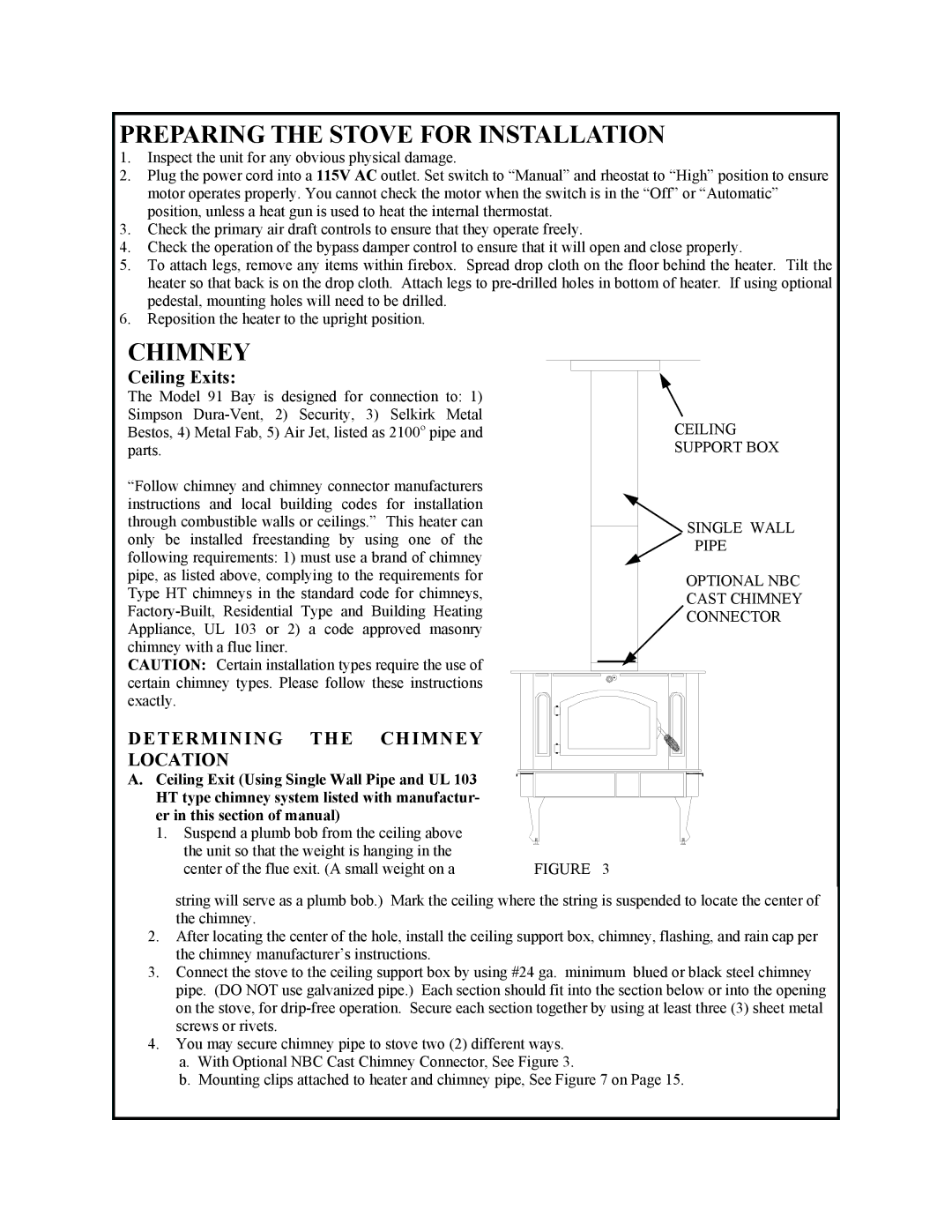
PREPARING THE STOVE FOR INSTALLATION
1.Inspect the unit for any obvious physical damage.
2.Plug the power cord into a 115V AC outlet. Set switch to “Manual” and rheostat to “High” position to ensure motor operates properly. You cannot check the motor when the switch is in the “Off” or “Automatic” position, unless a heat gun is used to heat the internal thermostat.
3.Check the primary air draft controls to ensure that they operate freely.
4.Check the operation of the bypass damper control to ensure that it will open and close properly.
5.To attach legs, remove any items within firebox. Spread drop cloth on the floor behind the heater. Tilt the heater so that back is on the drop cloth. Attach legs to
6.Reposition the heater to the upright position.
CHIMNEY
Ceiling Exits:
The Model 91 Bay is designed for connection to: 1) Simpson
“Follow chimney and chimney connector manufacturers instructions and local building codes for installation through combustible walls or ceilings.” This heater can only be installed freestanding by using one of the following requirements: 1) must use a brand of chimney pipe, as listed above, complying to the requirements for Type HT chimneys in the standard code for chimneys,
CAUTION: Certain installation types require the use of certain chimney types. Please follow these instructions exactly.
DETERMINING THE CHIMNEY LOCATION
A.Ceiling Exit (Using Single Wall Pipe and UL 103 HT type chimney system listed with manufactur- er in this section of manual)
1.Suspend a plumb bob from the ceiling above the unit so that the weight is hanging in the center of the flue exit. (A small weight on a
CEILING
SUPPORT BOX
![]() SINGLE WALL PIPE
SINGLE WALL PIPE
OPTIONAL NBC
CAST CHIMNEY
CONNECTOR
FIGURE 3
string will serve as a plumb bob.) Mark the ceiling where the string is suspended to locate the center of the chimney.
2.After locating the center of the hole, install the ceiling support box, chimney, flashing, and rain cap per the chimney manufacturer’s instructions.
3.Connect the stove to the ceiling support box by using #24 ga. minimum blued or black steel chimney pipe. (DO NOT use galvanized pipe.) Each section should fit into the section below or into the opening on the stove, for
4.You may secure chimney pipe to stove two (2) different ways.
a.With Optional NBC Cast Chimney Connector, See Figure 3.
b.Mounting clips attached to heater and chimney pipe, See Figure 7 on Page 15.
